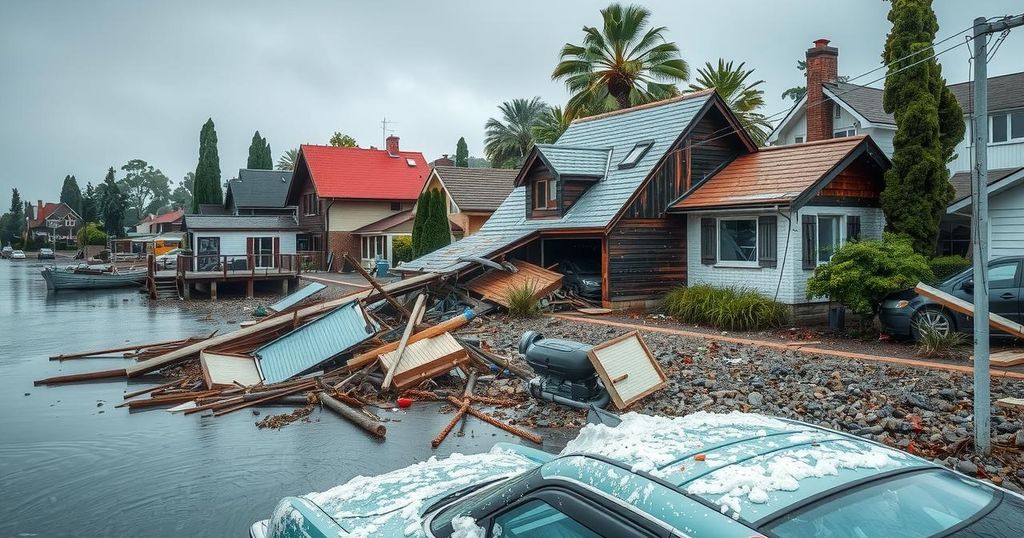Cyclone Chido: At Least 11 Fatalities and Devastation in Mayotte and Mozambique

Cyclone Chido has resulted in at least 11 deaths and extensive damage in Mayotte before impacting northern Mozambique. The storm, classified as a category 4 cyclone, unleashed devastating winds, causing injuries and critical conditions in medical facilities. Aid efforts are underway to assist affected populations amid warnings of potential humanitarian crises due to additional flooding and disease risks.
Cyclone Chido, which struck Mayotte and later Mozambique, has resulted in at least 11 fatalities and extensive destruction in the French overseas territory. The cyclone unleashed winds exceeding 220 kph (136 mph), marking it as a category 4 storm, which is one of the most intense. The preliminary assessments indicate a large number of injuries, with reports of critical cases in local hospitals. Damage was reported throughout Mayotte, the local prefect asserting that this cyclone is the worst the island has faced in nine decades.
In addition to the fatalities, the emergency services and local officials expressed concerns about further loss of life as they assessed the aftermath. The French government is mobilizing resources, including search and rescue operations, to aid affected communities. An air and maritime bridge is being planned to supply essential materials and humanitarian aid. Rescuers from Reunion Island have been dispatched to assist local efforts, while authorities have deployed a significant number of security personnel to help prevent looting during the crisis.
As Cyclone Chido moved onward to Mozambique, the severity of the impact on displaced communities came into focus, particularly in Cabo Delgado province. UNICEF reported significant infrastructural damage, emphasizing that local residents now face the risk of prolonged isolation from necessary services like education and healthcare. The potential for further humanitarian crises, exacerbated by chronic conditions such as cholera and malaria, remains a point of grave concern in the wake of the cyclone’s passage.
Cyclone season in the southeastern Indian Ocean runs from December to March. The region has faced numerous severe cyclones in recent years, leading to countless fatalities and widespread destruction. Climate change is believed to be influencing the frequency and intensity of these storms, with poorer nations suffering disproportionately despite their minimal contributions to global carbon emissions. Previous storms, such as Cyclone Idai and Cyclone Freddy, caused extensive loss of life and severe humanitarian crises across southern Africa. Understanding the implications of these cyclones is essential for responding effectively and providing necessary support to vulnerable populations.
In conclusion, Cyclone Chido has severely impacted Mayotte and northern Mozambique, claiming lives and causing significant infrastructural damage. The prompt response from France and regional aid agencies aims to restore essential services and prevent further crises in the aftermath of this devastating event. The ongoing threats posed by climate change underscore the need for sustained humanitarian efforts in affected regions, highlighting the vulnerability of impoverished communities to natural disasters.
Original Source: time.com








